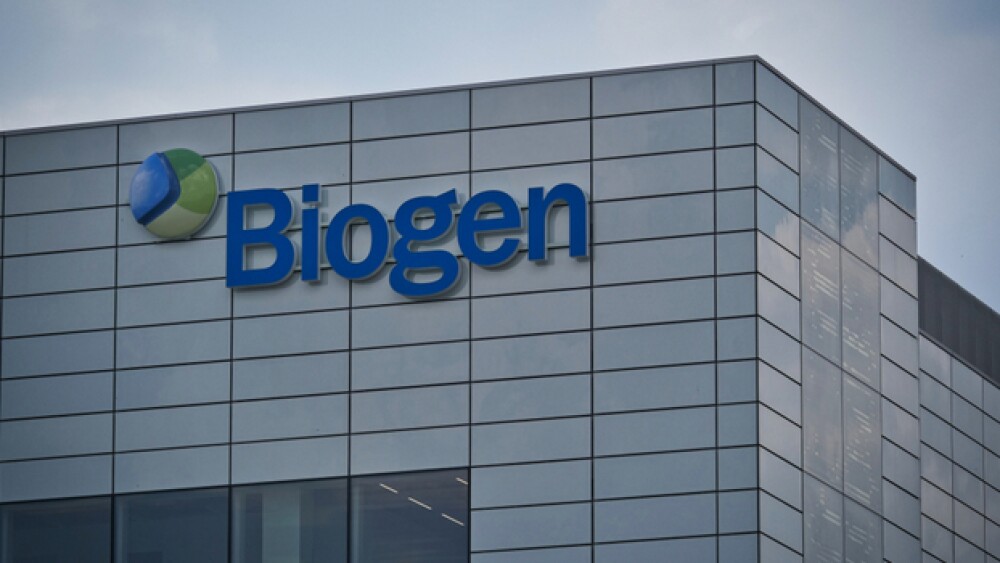Biogen agreed to pay $22 million in response to allegations that it violated the False Claims Act, and now, life insurance company Humana is suing Biogen over a similar scheme.
PictureDesignSwiss/Shutterstock
In December 2020, Biogen agreed to pay $22 million in response to allegations that it violated the False Claims Act by using foundations to handle the copays of Medicare patients taking its multiple sclerosis (MS) drugs, Avonex and Tysabri. That would seem to have taken care of the issue, but now, life insurance company Humana is suing Biogen over a similar scheme.
Medicare beneficiaries are often required to make a partial payment, whether a copay, coinsurance or deductible, when they receive a prescription drug covered by the government healthcare plan. Congress obliges it partially to assist with health care costs.
“Biogen coordinated with ACS to game the foundation system by timing its payments to two foundations with its transfer of financially needy free drug patients, all so that Biogen could obtain significant financial rewards,” said First Assistant United States Attorney Nathaniel R. Mendell, in a December 17, 2020 statement. “By treating the foundations simply as conduits to pay the co-pays of its own patients, Biogen violated the anti-kickback statute and undermined Medicare’s co-pay structure, which Congress intended as a safeguard against inflated drug prices.”
So, Biogen agreed to pay $22 million to resolve the allegations.
On Friday, September 24, 2021, Humana filed a lawsuit against Biogen, alleging that Biogen was at it again, encouraging patients to sign up for the drugs under Medicare, then, according to Humana, funneling “illegal copayment assistance to those same patients under the guise of unrestricted charitable giving.”
These drugs run from $50,000 to $80,000 per year.
In the lawsuit, Humana stated, “Given the high costs of the MS drugs here, copays can be thousands of dollars for any single patient. But they are a tiny fraction of the total expense for the drugs. This means that if the manufacturer pays the copays itself, it can earn a major return from a minor investment.”
Humana claims Biogen is working with specialty pharmacy Advanced Care Scrips and “nominally charitable foundations” Chronic Disease Fund and The Assistance Fund.
The Chronic Disease Fund and The Assistance Fund have already made federal settlements worth $4 million and $2 million, respectively, and Advanced Care Scripts agreed to a $1.4 million settlement with the federal government.
Humana has also filed similar lawsuits against Teva Pharmaceuticals and Regeneron Pharmaceuticals.
In non-legal news, Biogen and its development partner Eisai Company announced that Eisai had started a rolling submission to the U.S. Food and Drug Administration (FDA) of a Biologics License Application (BLA) for lecanemab for early Alzheimer’s disease. The two companies, of course, are the developers of the controversial Alzheimer’s drug Aduhelm (aducanumab).
Lecanemab is an investigational anti-amyloid beta protofibril antibody. It is being submitted under the Accelerated Approval pathway and is built mainly on clinical, biomarker and safety results from the Phase IIb Study 201 in patients with early Alzheimer’s and confirmed amyloid pathology.
Study 201 demonstrated a high degree of amyloid beta plaque lowering and a consistent decrease of clinical decline of several clinical endpoints. They note that the extent of the correlation between the beta-amyloid plaque decrease and the effect on clinical endpoints supports beta-amyloid as a surrogate endpoint that is “reasonably likely to predict clinical benefit.”
That statement is one of the controversies associated with Aduhelm. An Accelerated Approval pathway typically relies on surrogate endpoints instead of clinical improvement. When the FDA’s Peripheral and Central Nervous System Drugs Advisory Committee voted in November 2020 against recommending Aduhelm, they asked the agency if it intended to use a surrogate endpoint and consider an Accelerated Pathway. The FDA indicated it did not. But when they eventually approved the drug, they did so on the premise that although the clinical benefit of Aduhelm was murky, it showed a clearing of beta-amyloid. And although a decrease of beta-amyloid has not definitively been proven to improve symptoms of Alzheimer’s disease, it might.
Study 201, of lecanemab, seems to demonstrate both clearance of beta-amyloid as well as a decrease in clinical decline.
Michel Vounatsos, Chief Executive Officer of Biogen, stated, “We believe that treatments directed at amyloid beta reduction in the brain have the potential to transform diagnosis and treatment of Alzheimer’s disease. We look forward to continuing to work with Eisai to pioneer science, advance knowledge, and serve the needs of Alzheimer’s patients.”





